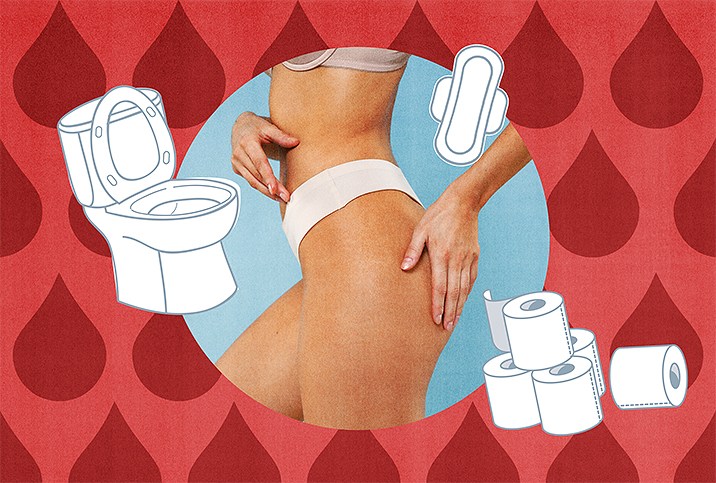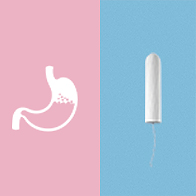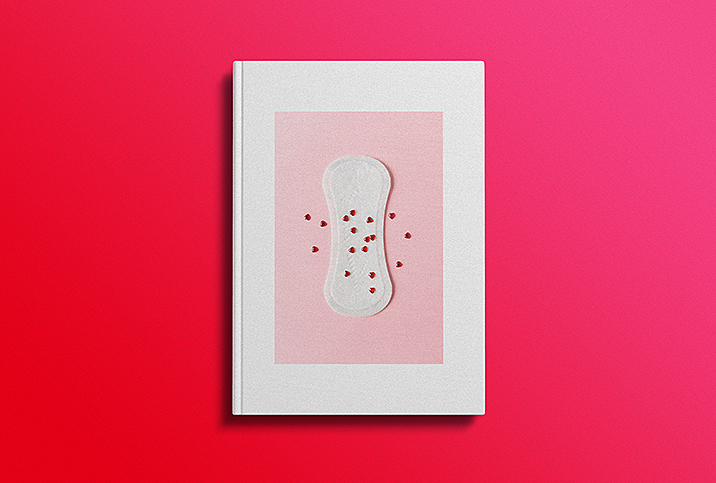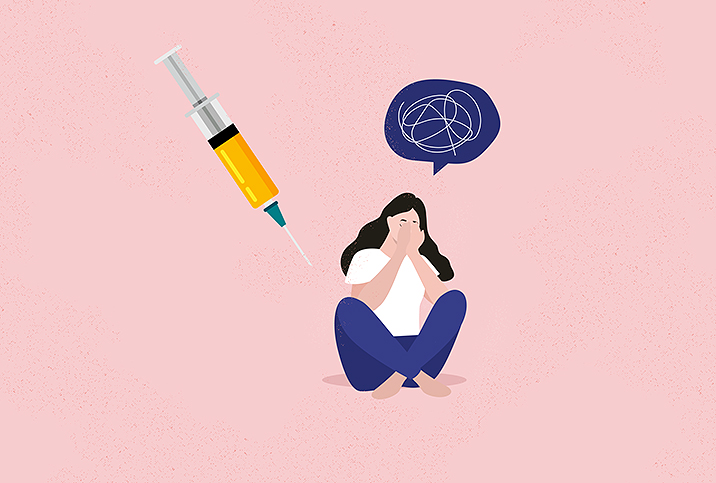The Stinky Truth About Period Poop

Your body goes through a lot during menstruation. Aside from premenstrual syndrome (PMS) symptoms such as skin breakouts, bloating, cravings and mood swings (need I go on?), your stool changes, too.
While it may feel icky to talk about, it's actually common. In fact, one study suggested 73 percent of women (who had no regular gastrointestinal complaints or gynecological or psychiatric disease) experienced several gastrointestinal issues during their menstrual cycle.
Period poop—along with other gastrointestinal issues—is a very real thing that many women experience during their menstrual cycle. Being informed about period poops will help you move past the pain and unpleasantness—the smell included—and take steps to manage it.
What is period poop?
Period poop, as it's called, refers to a side effect of a woman's menstrual cycle associated with changes in the digestive system. In other words, you'll notice differences in the frequency, consistency and even smell of your poop when your period starts.
According to Sherry Ross, M.D., an OB-GYN and women's health expert at Providence Saint John's Health Center, who goes by Dr. Sherry, period poop is more common than you would think.
"Bowel changes—especially diarrhea, and more frequent bowel movements—are very common symptoms associated with a menstrual period," she explained. "These 'period poop' changes affect the majority of women, some worse than others."
Blame period poop on the hormones
There are biological reasons why your poop isn't the same while on your period. Your bowel movements change due to predictable period-related hormonal shifts. As you start your period, your body produces prostaglandins responsible for stimulating muscle contractions in the uterus that make it shed its lining every month. Another regulating hormone, progesterone, can have an impact on your digestive system.
"These disruptive prostaglandins make the intestines and uterus contract—causing diarrhea and constipation along with menstrual cramps the first three days of a period," Dr. Sherry said. She added that excess prostaglandins enable more water absorption in the body, causing loose stools and diarrhea.
Your bowel movements change due to predictable period-related hormonal shifts.
Some people may experience the opposite reaction to the fluctuating hormones and be constipated on their period.
"If your body produces fewer prostaglandins but elevated levels of progesterone, your digestion could slow down, and you can get constipated as a result," said Laura Downing, M.D., an OB-GYN in Austin, Texas.
Progesterone functions as a muscle relaxant and helps reduce bowel contractions. Therefore, it puts the brakes on food and gas as they pass through your intestines. As a result, you can feel bloated, gassy and constipated.
To ease period constipation, Downing recommends eating a high-fiber diet, keeping hydrated and exercising to improve digestion. If that fails, you can take an over-the-counter laxative.
Your poop smells worse for a reason
One of the weirdest side effects of menstruation is stinky poop.
"Gastrointestinal havoc is a normal occurrence during the menstrual cycle. Women often experience nausea, bloating, constipation and diarrhea, which is experienced most commonly. In addition to more frequent and loose stools, women can also experience foul odor bowel movements," Dr. Sherry said.
So why does period poop smell so bad? Foul-smelling poops can be traced back to your bizarre period cravings, which can also be traced back to the progesterone hormone. If you have high progesterone levels during the premenstrual phase, chances are you want to devour anything and everything in your pantry. One 2016 study indicated that high levels of progesterone were loosely linked to women craving sweets and estradiol was behind high-carb food preferences.
You can reduce foul-smelling bowel movements by eating a healthy diet. Although, many people with periods know that's easier said than done.
Painful poops could be due to an underlying condition
Some women experience pain when they poop during their period from several causes, including cramps, constipation and diarrhea.
Downing said bowel movements can be painful during menses "because the rectum and uterus are in close proximity, [so] the inflammation and cramps associated with one's period can affect bowel movements, too."
Those with underlying health conditions can experience more pain than others. For instance, women with inflammatory bowel syndrome (IBS) can have symptoms such as abdominal pain, bloating and diarrhea aggravated during menstruation. A 2015 study suggests that women suffering from IBS reported having more bowel disturbances than women with other digestive issues.
Other factors can exacerbate pain during period poop, like hemorrhoids stemming from constipation, endometriosis and ovarian cysts.
How to manage period poop
While period poop is common and nothing to get paranoid about, some cases merit more attention. There are natural remedies to manage bowel disturbances during your period.
"There are things you can do at home to treat bowel disturbances or manage 'period poop.' First, I recommend eating healthy foods," Dr. Sherry said. "Choose fiber-rich foods and stay away from sugar, caffeine, salt, alcohol and spicy foods. Second, don't forget to exercise regularly."
Keeping tabs on what you eat and managing your stress will also help in dealing with bowel disruptions. "You can throw in a probiotic to improve uncomfortable and unpleasant gastrointestinal symptoms. Relaxation techniques such as yoga, meditation, tai chi and mindfulness will help manage your stress levels," she added.
Of course, if home remedies are not working and you're experiencing painful bowel movements during your period, it may be time to see a doctor.
"You should seek medical advice if bowel movements are always painful, or if associated with diarrhea, blood or mucus persistently," Downing concluded. "If periods are painful, associated with nausea, diarrhea, or missing work or activities, you should see your gynecologist."




















